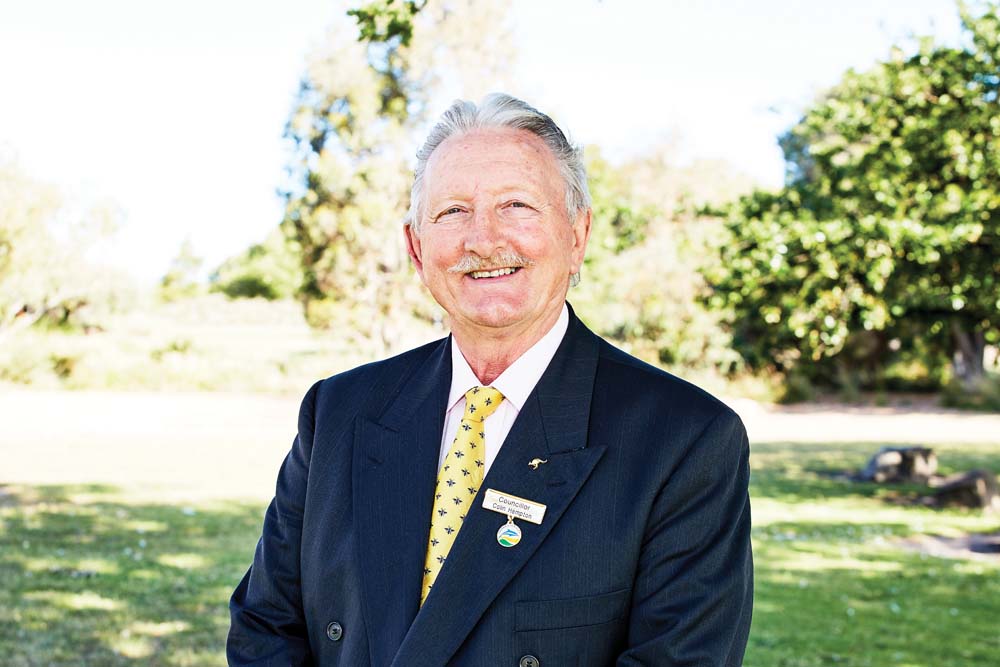
FRANKSTON mayor Cr Colin Hampton has publicly attacked “local” media in a column published in council’s quarterly Frankston City News distributed free to more than 60,000 homes and businesses.
In comments similar to US President Donald Trump in his ongoing battle against what he calls “fake news”, Cr Hampton blasted “local media” and said “sometimes the facts are not accurately presented”.
The column, headlined “Keeping our community informed”, said: “Unfortunately our local media does not always present balanced news. I have often seen important information omitted from local reports, with what seems to be a bias against council”.
“As much as I wish this were different, sometimes the facts are not accurately presented,” Cr Hampton stated.
“This disrespects local residents and is a disservice to the entire community.”
The mayor mentioned the Frankston Leader newspaper, published by News Corporation and ultimately owned by media mogul Rupert Murdoch, during his attack on the local media.
“The former mayor and I have both raised these issues at different times with the Australian Press Council, with regards to stories in the Frankston Leader, to try to change this situation in our community,” Cr Hampton said.
“I still hope things will improve.”
The mayor prior to Cr Hampton was Cr Brian Cunial.
In June last year a 5-3 majority of councillors voted to amend Frankston Council’s communications policy to encourage staff “to create, and maintain, positive working relationships with local media outlets”.
Crs Glenn Aitken, Kris Bolam, Quinn McCormack, Lillian O’Connor and Steve Toms voted for the push to improve relations with the local media. Crs Cunial, Hampton and Sandra Mayer voted against the adoption of that policy.
Cr Michael O’Reilly was not at the meeting.
The mayor said he does not believe the “informative article” in the Frankston City News breached council’s policies.
“Council’s Frankston City News editorial committee, including councillors and the executive management team, review and approve each edition of Frankston City News prior to print,” Cr Hampton said in a statement.
“After reviewing the Frankston City News editorial committee Terms of Reference, Communications Policy and the Councillor Code of Conduct, I do not believe in my opinion that there have been any breaches made as a result of my informative article.
“All councillors are provided with an opportunity to review Frankston City News content before it is authorised by myself as mayor to go to print.”
Cr Bolam, who introduced the notice of motion last year for council to change its communications policy, told The Times he will be speaking to council CEO Dennis Hovenden and the mayor about the publication of the “Keeping our community informed” column without consultation with all councillors.
“The column is inconsistent with the policy and is potentially damaging relations with the press,” he said.
“If we’re openly questioning the role of media, that’s something that requires a conversation with councillors and is not something that should be done unilaterally by the mayor.”
Cr Bolam noted the mayor is council’s official spokesperson and should, in his view, “reflect the will of the council” in the role.
“The council to my knowledge has not declared war on the free press.”
In the column, Cr Hampton directed Frankston ratepayers and residents towards council’s official “communication channels” including Facebook and Twitter to be “accurately informed about local decision making, events, project updates and how your rates are spent”.
The government in the UK banned British councils in 2010 from printing “their own newspapers” on a regular basis.
Then UK Local Government Minister Eric Pickles said the freesheets are “Town hall Pravdas” that undermine commercial news businesses and “present a glossy view of their local councils compared to the critical, independent approach taken by local newspapers”.
Frankston Council CEO Dennis Hovenden ended all council advertising in The Times early last year citing rate capping by the Labor state government as the reason council would no longer pay for adverts in the newspaper.
Council has continued to advertise with News Corp’s Frankston Standard Leader and publications owned by other publishers.
